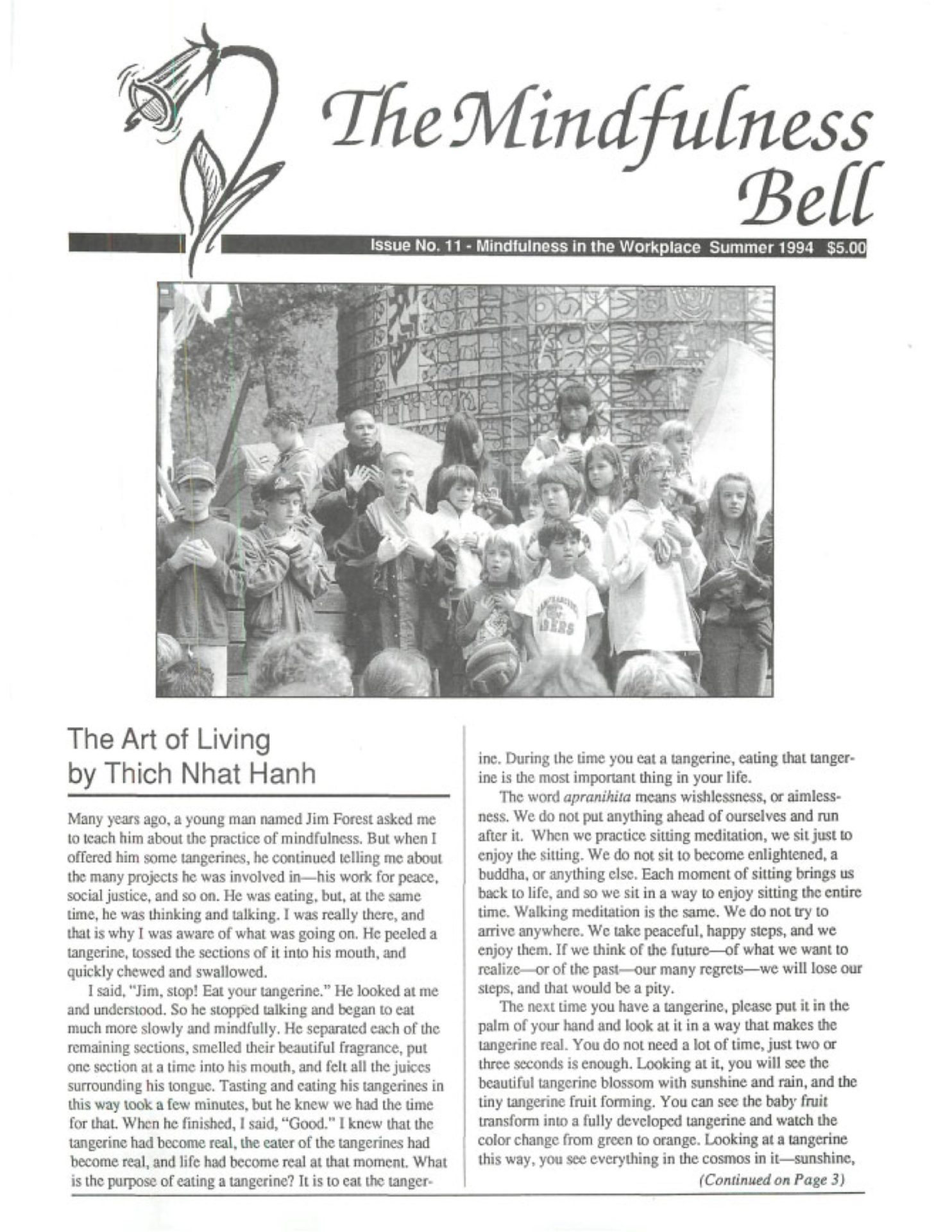By Mack Paul
I began meditating a few years ago to combat stress at work. I teach junior high students with learning and behavior problems, who, by the time I get them, have many years of school failure behind them. Their unhappy experiences in school, combined with puberty, tend to make them hyperactive and somewhat uncooperative. My task is to help them develop positive attitudes toward school and toward themselves. It is difficult, demanding work.
I was drawn to teaching by a love for children,
By Mack Paul
I began meditating a few years ago to combat stress at work. I teach junior high students with learning and behavior problems, who, by the time I get them, have many years of school failure behind them. Their unhappy experiences in school, combined with puberty, tend to make them hyperactive and somewhat uncooperative. My task is to help them develop positive attitudes toward school and toward themselves. It is difficult, demanding work.
I was drawn to teaching by a love for children, but I began to feel overwhelmed by the demands made upon me. I began to feel chronically stressed, and I had to steel myself psychologically to face work each day. I was getting sick a lot, and the more I got sick the more overwhelmed I felt. As much as I cared about the kids, I did not have the inner resources to work with them. They were clearly having a greater effect upon me than I was having on them.
I began meditating because I had heard that it might help strengthen my immune system. I could calm myself down a bit, but when faced with the demands of my daily life, I would quickly fly off the handle and feel as stressed as ever. One day, a friend introduced me to Thay's concept of "being peace," and I decided to try to integrate a meditative consciousness into my work. I began the project with a sense of trepidation. I really believed that I had to actively confront all the annoying things my students did in order to do my job properly. However, I had worked myself into such a state that I had little to lose by making this experiment.
When my students began their provocative behaviors, rather than responding with a reprimand, I began withdrawing for a moment to become aware of my breath and to calm my body. I was surprised at the results that can be achieved with this simple procedure. I have found that if I just withdraw, the offending behavior will often dissipate spontaneously. If it does not, and I feel a need to intervene, I find that I can redirect my students with a humorous nonthreatening remark that spares us both an unpleasant and fruitless confrontation. Since this simple practice has proven so useful to me, I've come to trust it more and use it consistently. It has helped me communicate with parents and colleagues in a much more positive manner.
Teaching in America can be a trying experience. Many students are desperately at risk, and we face grim realities on a daily basis. It has amazed me that I have been able to transform my classroom from an anxious environment to a happy one. I consider this work which I once found overwhelming to be fun and an actual source of joy. For me, mindfulness practice is indispensable.
Mack Paul is a junior high school teacher in Noble, Oklahoma.

